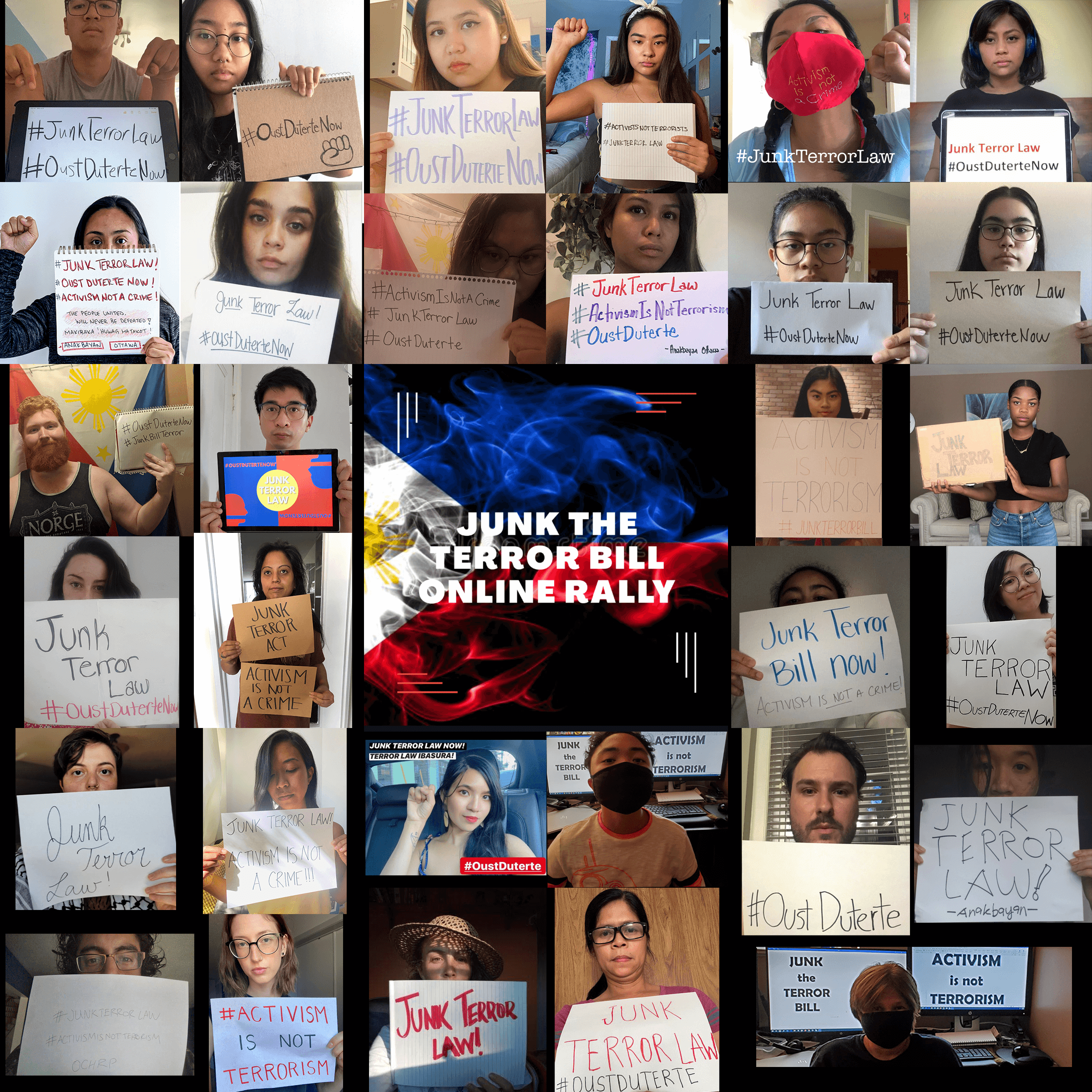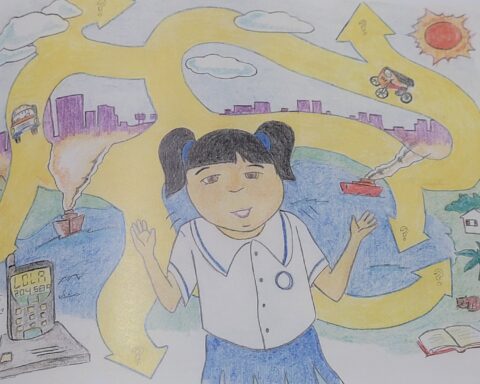Filipino-Canadian community groups see a deteriorating human rights situation in their home country, calling on fellow Canadians to join their campaign against a new Anti-Terror Bill that has just been enacted into law.
“There are upwards of 800,000 Filipinos in Canada. It’s the largest, fastest growing migrant group in the country, so we think that the Canadian government and the Canadian people should be much more actively engaged in what’s going on in the Philippines. We have a growing connection to the Philippines,” said Doug Booker, secretary-general of the Canadian chapter of International Coalition of Human Rights in the Philippines (ICHRP Canada).
Filipino advocacy groups in Canada began hosting virtual discussions and rallies in protest against the Bill that uses sweeping definitions to potentially stifle democracy. While the new law would seem in line with similar legislation in other democracies, closer inspection shows the ambiguity that can be used to do more damage than good. For example, it allows the arrest of those merely “suspected” of terrorism, without warrants.
Organizations warn that even Filipinos abroad will be targeted if they speak out against the Philippine government online.
Filipino Advocacy in Canada
Anakbayan, Migrante and ICHRP, are global organizations with their own large following in Canada.
Anakbayan,which translates to “Youth of the nation”, is an organization of youth fighting for democracy in the Philippines. It has over 25,000 members with four groups in Ontario and Alberta. Canadian Anakbayan groups are hosting these online discussions and rallies in collaboration with Migrante Canada, to educate and bring awareness to the Bill.
Migrante Canada began in 2010 with 17 organizations in the provinces and maritimes, and has been growing ever since, while ICHRP Canada began recently in 2019 with programming across the country.
Phil Pres Duterte signed the Anti Terror Bill in the Philippines putting the country in virtual martial law. Join Migrante in a webinar understanding the impact to the Filipino diaspora #JunkTerrorLaw #OustDuterte pic.twitter.com/prGHgZdsxV
— Marco Luciano (@marco_luciano) July 4, 2020
BAYAN Canada is another organization with groups across the country forging alliances with the Filipino community and other Canadians.
Philippine President Rodrigo Duterte’s leadership style, silencing and threatening those who oppose him, has been a lightning rod ever since he was elected in 2016. Just this past year, the Philippines has seen the shut down of broadcasting corporation ABS-CBN and the libel conviction of journalist Maria Ressa.
Silencing voices
Anakbayan Ottawa sees the new law as a way of silencing anti-Duterte voices. “We recognized immediately that it was a direct attack on organizations and individuals fighting for human rights and against injustice in the Philippines. It is a violation of the Filipino people’s rights in the homeland and abroad by criminalizing and labelling people as terrorists who show any form of dissent to the Philippine government,” said an Anakbayan Ottawa representative over email.
BAYAN Canada’s secretary general, Rhea Gamana, stated that this Bill can accuse someone of terrorism for simply questioning Duterte’s government.
“Without declaring martial law, President Duterte has completed the process — giving the Philippine National Police and Armed Forces of the Philippines greater powers to further suppress both civil and democratic rights of the Filipino people. Its broad and vague definition of terrorism can accuse anyone of being a terrorist.” said Gamana.
Ontario-based, Filipino-Canadian news organizations Atin Ito and the Philippine Reporter along with mainstream media have aired similar concerns, as they reported on the Bill and the work advocacy groups have done to spark a conversation across Canada.
Migrant workers continually suffer under ongoing forced migration of Filipino workers because of the worsening human rights situation in the Phillipines. The situation is even worst under the Duerte regime. The anti-terror law can be used against dissenters even on social media. pic.twitter.com/dMpnkHiWyM
— Spring Magazine (@springmagca) July 8, 2020
“We may not be in the Philippines, but the mere fact that our right to be critical of his governance is being suppressed by this Act is something we must question. We must remember that Filipinos abroad, as the third largest remittance senders in the world, help keep the Philippine economy afloat. We therefore have all the right to take part in ensuring accountability from the said administration,” said Gamana.
Director of Migrante Alberta, Marco Luciano, echoed the same concerns. Luciano stated that even those in the Filipino diaspora can be red-tagged online and arrested when they return to the Philippines.
Calling on Canadians
Booker urges Canadians to consider the patterns of the Duterte government.
“It has all the hallmarks of a military dictatorship, all the key cabinet portfolios, outside of the economic portfolios, are controlled by military or ex-military individuals,” said Booker, adding that Human Rights Watch has documented 28,000 deaths from the so-called war on drugs.
Advocacy groups cite the story of Reina Mae Nasino, a member of Anakbayan working in Tondo, Manila, as an example of the worst excesses that are in store.
Advocacy groups warn that acts like these are a constant threat to those who oppose the current government, citing the arrest of human rights advocacy groups soon after the Bill was passed.
Booker wants to see the Canadian government take an active role and to monitor the human rights situation in the Philippines more closely.
Luciano added that Canadians should urge their government to cease selling military arms and equipment to the Philippines as it is being used against those who oppose the current government.
Anakbayan Ottawa urges Canadians to email their local Canadian representatives, the Philippine Embassy and Consulate to Junk the Terror Law. Gamana urges Canadians to join the many advocacy groups in Canada in solidarity.
Rhea Lisondra is a Carleton Journalism and Humanities graduate and is based in Trenton, Ontario. She reports for New Canadian Media and is a co-host on the podcast AZN Connection.





